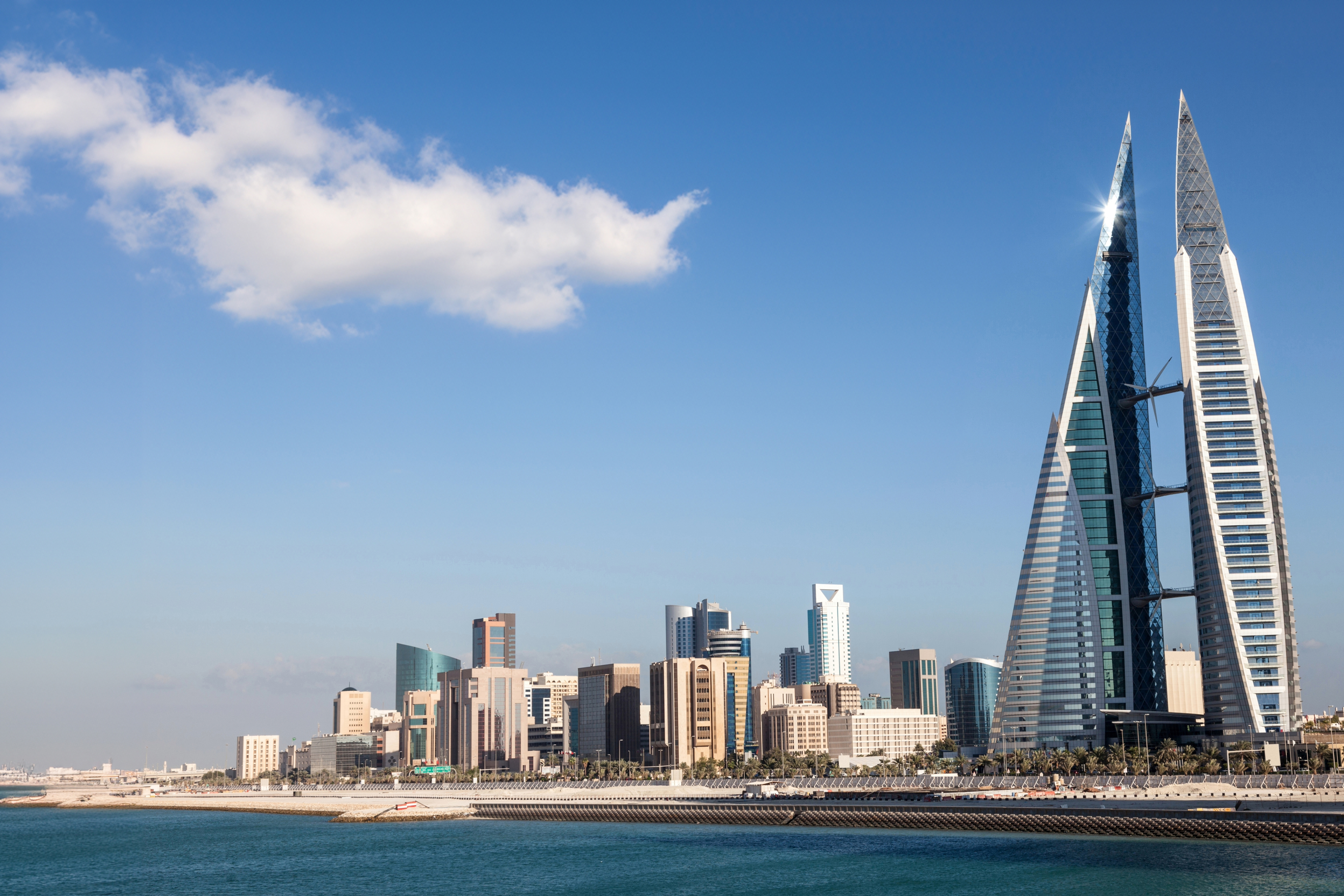Bahrain’s tax system is one of the most cost effective ways of doing business in the world, with significant savings on tax payments to the government compared to many other countries. There is no personal income tax, no corporate income tax, no capital gains tax, and no other taxes.
As a result of such a loyal tax policy, many foreigners seek to transfer capital to Bahrain or open a business here. The country is therefore almost on a par with the UAE as a jumpstart for profitable entrepreneurship.
Bahrain’s tax system
Bahrain’s tax system has been simplified as much as possible, particularly to attract foreign capital. The main objectives of government policy are to develop other sectors of the economy besides oil and gas, which can be positively influenced by the involvement of foreign investors.
So far, Bahrain is the only country in the Persian Gulf that has not introduced a basic profit tax at the legislative level. The only exception is for companies operating in the oil and gas sector. Otherwise, both individuals and legal entities are exempt from income tax. Only VAT (introduced in 2019) and social security contributions (paid by both the employer and the employee, with rates increasing annually) are levied.
Almost all Gulf countries have a similar approach to taxation, and in some areas the terms may even be more favorable. Therefore, when searching for the optimal jurisdiction, companies should consider and compare the benefits of doing business in different countries in the region.
Traditionally, the UAE remains the leader due to the variety of free economic zones. While other countries may increase their corporate tax rate over time, the Emirates offer the opportunity to operate at no cost in any applicable free zone.

Bahrain has a zero income tax rate. This applies to all individuals regardless of their status in the country – citizens, expatriates and non-residents.
Corporate taxes
Just as with individuals, there is no tax on corporate profits in Bahrain in 2025. Only companies operating in the oil and gas industry are required to pay a levy of 46% of net profits for each tax year, regardless of where the company is registered. Entrepreneurs are also exempt from the capital gains and property taxes that apply in many countries.
Bahrain’s tax policy changing outlook
Bahrain, like many other countries in the region, has built its economy on large reserves of oil and gas. However, authorities realize that the amount of natural resources is limited, which is why they need to think about filling the budget in other ways. Attracting foreign investors with zero tax rates allowed the state to increase the pace of construction and infrastructure development.
Today, however, Bahrain is not benefiting as much from the large number of foreign entrepreneurs already operating in the country, which means that the tax system needs to be adjusted. There have been serious discussions on this issue since 2023, as the authorities needed to find a compromise solution to maintain a strong economic position and not lose foreign entrepreneurs interested in investing at the same time.
Sign up for a consultation
Introduction of a 15% tax rate for large corporations starting in 2025
After numerous discussions by the authorities on the reform of the tax system, Decree-Law No. 11 on the introduction of an income tax for multinational companies was published. The law in question was issued on September 1, 2024, but will enter into force as early as January 1, 2025. The law introduces a minimum domestic corporate income tax (DMTT) of 15% on profits. The tax will only be levied if the consolidated income of the company for the last two out of four years exceeds EUR 750 million.
While the implementation of this tax in Bahrain makes sense in terms of minimizing the dependence of the Bahraini economy on the oil and gas sector, it promises to be costly for entrepreneurs. Of course, the rate of 15% is low compared to many European countries, but in the context of the previous zero rate, the financial losses will be significant.
That’s why the UAE is still the best place to do business in the region, where you can always count on tax-free activities thanks to a large number of free economic zones.
You can learn more about and the details and prospects of the tax system from international law specialists.
Value added tax (VAT) rate in Bahrain
From 2022, VAT in Bahrain is 10%. All individuals and entities who are self-employed for the purpose of generating income and who make annual supplies exceeding the threshold value of BHD 37,500 (USD 99,500) are required to register with the National Bureau of Revenue (NBR) for VAT purposes and pay the levy.
The standard VAT applies to a wide range of goods and services. This list includes catering and restaurant activities, office supplies, certain educational services and activities, cosmetic procedures, insurance, demolition and repair of buildings, hotel accommodation and others.
For a long time, the country also had zero VAT, which was first introduced in 2019 – with a rate of 5%. Later the percentage was increased. The same reasons that led to the introduction of the income tax from 2025 are behind such measures. To ensure the successful functioning of the economy in the conditions of declining oil and gas reserves, the authorities are gradually reforming the tax system.

VAT exemptions and benefits
Local businesses that do not meet the established supply threshold are exempt from paying VAT. In addition, the legislation defines industries whose activities are subject to a 0% instead of the standard 10% rate. These include:
- Basic food products from the list approved by the authorities;
- Basic and preventive health services – diagnostics, treatment, tests, medicines;
- Education, apart from vocational training;
- Local transportation, i.e. buses, taxis, air travel from Bahrain, cargo transportation;
- Oil and natural gas, as well as petrol, diesel fuel, motor oil.
Foreign investment taxes
Taxation in Bahrain for foreigners does not differ from that for nationals for the most part. Anything related to the profitable activity of a multinational company is subject to zero tax until January 1, 2025. The changes that have been introduced are also general and do not differentiate in any way with regard to the status of the company in the country.
Taxes for non-residents
If a foreigner does not have resident status, special tax rules apply in certain areas. The general personal and corporate tax in Bahrain remains zero for non-residents. However, with regard to VAT, there is no limit (BHD 37,500) on the amount above which non-resident entrepreneurs are required to register as taxpayers. These entrepreneurs must register for VAT within 30 days from the date of the first supply, regardless of its value.
Social contributions also differ. While the rates for local employers and employees increase annually to reach 17% and 7% from 2022, respectively, foreigners only have to pay 3% and 1%.
Bahrain as an offshore jurisdiction
Opening a company in Bahrain is advantageous for foreigners in many ways. It is a loyal tax environment where one can operate without artificial complications from the state and save on many expenses. Among the advantages of choosing Bahrain as a jurisdiction for business and capital transfer are:
- Zero corporate tax;
- No record of the country in the black and gray lists of OECD, FATF, EC;
- Great number of reliable banks serving non-residents (Standard Chartered, BNP Paribas, HSBC, JPMorgan Chase & Co);
- Right to 100% foreign ownership of company capital;
- A wide variety of forms of business activity.
Import/export taxes: are there any charges?
Most categories of goods are subject to a 5% tariff. The only exceptions are tobacco products and alcoholic beverages, which are subject to rates of 100% and 125% respectively. To encourage foreign direct investment, the government of Bahrain does not impose customs duties on imports of raw materials or semi-finished goods, provided that the finished products assembled from these inputs are exported from the country.
The authorities also allow duty-free entry of goods imported for development projects (excluding spare parts) and transshipment goods. Exemption from customs duties may be granted if there is a free trade agreement in place between the countries concerned.
Exports from Bahrain are subject to a zero rate of VAT if the following conditions are met:
- The goods cannot be altered, used or resold to third parties before leaving Bahrain;
- The supplier must retain commercial and official documents for the shipment.
How do Bahrain taxes affect doing business?
The rate of corporate income tax determines the percentage of the profit earned by the entrepreneur. In addition, there are other taxes such as VAT, social security contributions and so on, which can end up being quite costly for an entrepreneur. In some countries with a progressive tax scale, for large companies with high turnover, losses can exceed half of the profit. That’s why it’s so important to choose a loyal jurisdiction, in order to get the maximum benefit from the activity.
In this sense, Bahrain, as well as other countries in the region, is not a bad stepping stone. Entrepreneurs from all over the world are actively setting up businesses in the country. With the opportunity for 100% sole ownership of capital, foreigners can rationally dispose of finances and save on taxes to accumulate finances for faster business development. While many countries do not apply preferential tax rates to the activities of banks, insurance and investment companies, it is still possible to operate duty-free in these areas in Bahrain.

How to set up a business and avoid tax traps
Company registration in Bahrain does not take long and is generally characterized by a relatively simple bureaucracy. The application package is submitted online through the Sijilat system. It takes 3-10 days for the application to be processed by the Ministry of Industry and Commerce, which then issues a certificate of incorporation. The foreigner is entitled to choose different forms of operation, and may also consider establishing a trust in Bahrain. Considering the specifics of trusts, this approach also allows for tax optimization and capital protection.
It can be difficult to give practical advice on setting up a business in Bahrain in terms of tax incentives, as there are none in the country. For the time being, the current 0% tax rate is simply in force for all entrepreneurs. However, with the upcoming changes and the increase in the tax rate to 15% for multinational companies, it is worth considering the benefits of doing business in this country. Of course, some of these organizations will still be able to continue to operate tax-free, but further expansion will result in full taxation one way or another.
In order to make the right decision, it is recommended to consult with professionals. Considering the niche, the amount of capital and further business plans, lawyers will be able to assess the prospects of operating in Bahrain and recommend more favorable jurisdictions. Still the most stable and reliable business stepping stone is the UAE, where economic stability is combined with high purchasing power.
With the help of specialists, it is possible and obtain a residence permit in the Emirates in a short period of time.
Should you relocate to Bahrain?
In terms of the cost of doing business alone, and before the recent innovations with the introduction of corporate tax in Bahrain, the answer to this question would have been an obvious yes. The country could be considered as an offshore zone, but without any reputational risks for the entrepreneur. The new corporate tax rate has made its own adjustments, but considering that the changes only affected multinational companies, it’s not a disadvantage for everyone.
In general, all Gulf countries offer almost the same conditions for entrepreneurs in terms of taxes. But then comes the question of business environment and general living standards.
At this point, one should be aware that Bahrain is a poor country by Middle Eastern standards. You cannot count on luxury, glamour, and most importantly, prospects, because the business environment is limited, in part due to relatively low salaries. For example, the entire IT market in the region is concentrated in Dubai.
Therefore, while it is possible to establish a tax-free business in Bahrain, it is still doubtful whether there are optimal conditions for its promotion. However, it is more reliable and reasonable to choose a jurisdiction where you can not only enjoy zero taxes, but also have optimal conditions for scaling your business, establishing useful business contacts, and developing locally and internationally.














